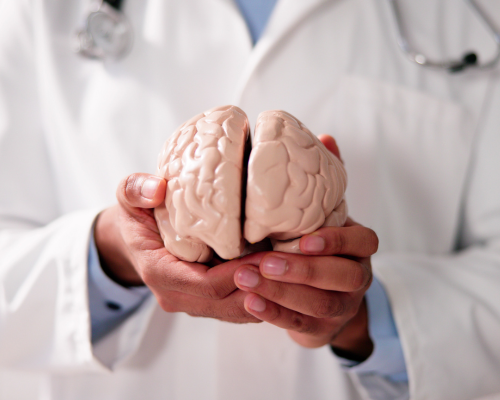Cognitive Rehabilitation for Seizures, Traumatic Brain Injury (TBI), and Stroke

Cognitive Rehabilitation for Seizures, Traumatic Brain Injury (TBI), and Stroke
At Manoshanti Neuropsychiatry Clinic, we understand the significant impact that conditions such as seizures, traumatic brain injury (TBI), and stroke can have on cognitive functioning. Cognitive rehabilitation is a specialized therapy designed to help individuals regain lost cognitive skills, improve memory, and enhance overall brain function after these neurological events. Our expert team offers comprehensive, personalized cognitive rehabilitation programs to support recovery and improve quality of life.
What is Cognitive Rehabilitation?
Cognitive rehabilitation is a therapeutic process that aims to improve cognitive abilities such as memory, attention, problem-solving, and language skills. It uses tailored exercises, techniques, and strategies to help patients recover from cognitive deficits caused by neurological conditions.
For individuals recovering from seizures, TBI, or stroke, cognitive rehabilitation focuses on enhancing the brain’s ability to process, store, and retrieve information, enabling patients to regain independence and improve daily functioning.
Cognitive Rehabilitation for Seizures
Seizures, particularly when they are recurrent, can lead to cognitive impairments such as memory loss, attention difficulties, and slower processing speeds. Cognitive rehabilitation for seizure patients focuses on:
- Memory Improvement: Techniques to enhance both short-term and long-term memory retention.
- Attention and Focus: Exercises to help improve concentration and sustained attention during tasks.
- Processing Speed: Activities that target faster information processing and decision-making.
- Language Skills: Rebuilding communication abilities and reducing any deficits in speech or language.
Our team works closely with patients to address specific cognitive deficits resulting from seizure-related brain changes, enabling them to regain mental sharpness and function more independently.
Cognitive Rehabilitation for Traumatic Brain Injury (TBI)
Traumatic Brain Injury (TBI) often results in significant cognitive impairments that affect memory, attention, executive function, and language skills. Cognitive rehabilitation for TBI patients is designed to restore lost functions and improve overall brain performance. Key areas of focus include:
Memory Enhancement
Memory deficits are common after TBI, so we focus on strategies that improve both working memory and long-term memory. This includes using mnemonic devices and exercises that strengthen recall abilities.
Attention and Focus
Patients often experience difficulty focusing, multitasking, or sustaining attention. Through structured exercises, we help improve attention span and concentration.
Problem-Solving and Executive Functioning
TBI can affect an individual’s ability to plan, organize, and make decisions. Cognitive rehabilitation focuses on enhancing executive functions, including planning, reasoning, and flexible thinking.
Speech and Language
Patients who suffer from speech or language deficits after TBI may require therapies to improve verbal communication and understanding, as well as enhancing reading and writing skills.
Our rehabilitation approach for TBI patients is holistic, targeting all aspects of cognitive functioning to help individuals return to their everyday lives with greater independence.
Cognitive Rehabilitation for Stroke
Stroke survivors often experience a wide range of cognitive challenges, such as memory loss, difficulty with speech, and poor concentration. Cognitive rehabilitation for stroke patients includes therapies that target the following:
Memory Recovery
Stroke survivors may have trouble remembering new information or recalling familiar facts. Cognitive rehabilitation focuses on strengthening both short-term and long-term memory through structured exercises and memory aids.
Attention and Concentration
Cognitive impairments related to attention and focus are common after a stroke. Our rehabilitation programs are designed to help patients regain the ability to stay focused on tasks, improve processing speed, and manage distractions.
Language and Communication
For stroke patients with aphasia (difficulty with speech), therapy focuses on improving speech comprehension and verbal expression. We use various strategies to help patients communicate more effectively with their family and friends.
Visual and Spatial Skills
Stroke patients may also experience difficulties with spatial awareness, which can affect mobility and daily tasks. Our rehabilitation program includes exercises that target visual and spatial skills to enhance daily functioning.
The Rehabilitation Process
At Manoshanti Neuropsychiatry Clinic, cognitive rehabilitation is highly individualized, with a clear focus on the specific cognitive impairments caused by seizures, TBI, or stroke. The rehabilitation process typically includes the following:
- Initial Assessment: We conduct a comprehensive evaluation to identify the cognitive challenges the patient is facing, including memory, attention, language, and problem-solving.
- Customized Therapy Plan: Based on the assessment, a personalized rehabilitation plan is created, incorporating specific exercises and activities to target the identified cognitive deficits.
- Therapeutic Exercises: The patient will undergo cognitive exercises, such as memory drills, attention-building activities, and problem-solving tasks. These exercises are designed to help the brain form new connections and strengthen existing ones.
- Ongoing Monitoring and Support: Our specialists continually monitor the patient’s progress and adjust the therapy plan as needed to ensure optimal results.
- Family Involvement: We encourage family members to participate in the rehabilitation process by learning ways to support the patient’s recovery at home.
Why Choose Manoshanti Neuropsychiatry Clinic for Cognitive Rehabilitation?
At Manoshanti Neuropsychiatry Clinic, we offer a compassionate, multidisciplinary approach to cognitive rehabilitation. Our experienced team of neuropsychiatrists, psychologists, and therapists work together to help patients regain their cognitive abilities and improve their overall well-being. We provide ongoing support to both patients and families throughout the rehabilitation journey.
